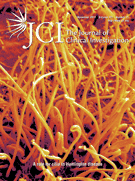
Bruce Murdoch, a neuroscientist formerly of the University of Queensland, will appear in court next week to face fraud charges stemming from an investigation that has already led to three retractions, several corrections, and similar charges for one of his colleagues.
Here’s the notice from the Crime and Corruption Commission: Continue reading Second former University of Queensland researcher to appear in court to face fraud charges






